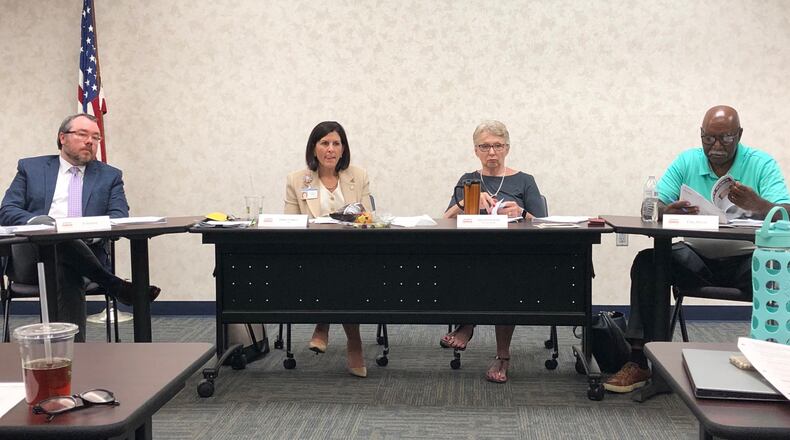The organization also is 50-60 applications ahead of last year’s pace in private, non-school-based preschool/daycare sites as well, Marshall said.
RELATED: Students showed “significant gains” in 2017-18
“The program is largely the same; we’re just trying to get better at it and make sure we’re reaching the right people,” Preschool Promise Executive Director Robyn Lightcap said.
Preschool Promise aims to help more local 4-year-olds attend preschool via tuition assistance payments for families. It also provides training to the preschool and daycare centers so they offer a higher quality of education and care.
The goal is to improve long-term education outcomes by helping more children be ready for school. The biggest effort has been in Dayton, where an income tax levy pays for services.
The program served about 1,800 4-year-olds in Montgomery County this year.
The biggest focus now is on improving preschool educational quality, Lightcap said, as initial pilot programs and the first year of full implementation in 2017-18 did not close achievement gaps the way the program hoped.
“It’s been such a steady build,” she said. “We’re trying to figure out the best way to support our teachers.”
RELATED: Preschool group trying to close achievement gaps
To that end, Preschool Promise has roughly doubled its teacher training opportunities on conscious discipline, creative curriculum, culturally responsive teaching and more. The organization is also considering a $1,000 annual stipend for teachers at private Preschool Promise sites in Dayton who meet a series of requirements on training, attendance and goal-setting.
Preschool Promise Board Chairwoman Deborah Feldman said the group has known from the beginning of its efforts that one of the biggest challenges is the low pay of teachers in private preschool and daycare settings. Many job websites list the average preschool teacher salary in this region at $12 to $13 per hour.
The stipend wouldn’t solve that issue, Feldman said, but it would at least offer an incentive, given the amount of training the group is asking teachers to do.
Preschool notes
• Preschool Promise has contracted with Kids Read Now to send one children’s book per month to the home of each Preschool Promise student, at a total cost of $115,000. Teachers will include the books in classroom lessons, and families will be encouraged to read them with children at home. Education analysts say many low-income children are hindered by a lack of books available at home.
• Lightcap said 19 of the 73 Preschool Promise sites increased their “star rating” in the state’s Step Up to Quality system during the 2018-19 year. It’s the second year in a row that at least 25 percent of the group’s sites gained a star.
RELATED: Tuition assistance will be spread to more families
• Preschool Promise’s annual budget is now $6.7 million, with $4.3 million coming from the city of Dayton, $2.4 million from Montgomery County and $35,000 from private funding. Lightcap said the group is “in good shape (and) under budget overall.” Feldman said they are en route to raising $100,000 to expand the star attendance program that offers financial incentives to families whose students have strong attendance.
About the Author

